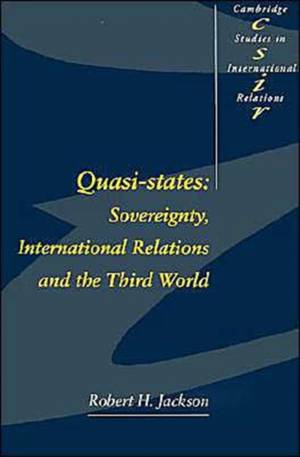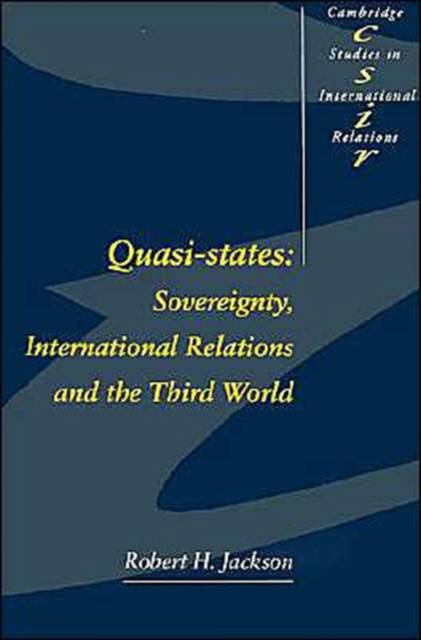
Door een staking bij bpost kan je online bestelling op dit moment iets langer onderweg zijn dan voorzien. Dringend iets nodig? Onze winkels ontvangen jou met open armen!
- Afhalen na 1 uur in een winkel met voorraad
- Gratis thuislevering in België vanaf € 30
- Ruim aanbod met 7 miljoen producten
Door een staking bij bpost kan je online bestelling op dit moment iets langer onderweg zijn dan voorzien. Dringend iets nodig? Onze winkels ontvangen jou met open armen!
- Afhalen na 1 uur in een winkel met voorraad
- Gratis thuislevering in België vanaf € 30
- Ruim aanbod met 7 miljoen producten
Zoeken
€ 60,95
+ 121 punten
Omschrijving
Robert Jackson examines the birth and survival of Third World nations since the end of the Second World War. He describes these countries as "quasi-states," arguing that they exist more by the support and indulgence of the international community than by the abilities and efforts of their own governments and peoples. He investigates the international normative framework that upholds sovereign statehood in the Third World. This he calls "negative sovereignty" and contrasts it with what he sees as the "positive sovereignty" that emerged in Europe along with the modern state. Within this structure, he examines how negative sovereignty arose, and its mechanisms and consequences for both international politics and the domestic conditions of quasi-states. He concludes by assessing the future of quasi-states and the institution of negative sovereignty.
Specificaties
Betrokkenen
- Auteur(s):
- Uitgeverij:
Inhoud
- Aantal bladzijden:
- 240
- Taal:
- Engels
- Reeks:
- Reeksnummer:
- nr. 12
Eigenschappen
- Productcode (EAN):
- 9780521447836
- Verschijningsdatum:
- 26/03/1993
- Uitvoering:
- Paperback
- Formaat:
- Trade paperback (VS)
- Afmetingen:
- 151 mm x 227 mm
- Gewicht:
- 308 g

Alleen bij Standaard Boekhandel
+ 121 punten op je klantenkaart van Standaard Boekhandel
Beoordelingen
We publiceren alleen reviews die voldoen aan de voorwaarden voor reviews. Bekijk onze voorwaarden voor reviews.











